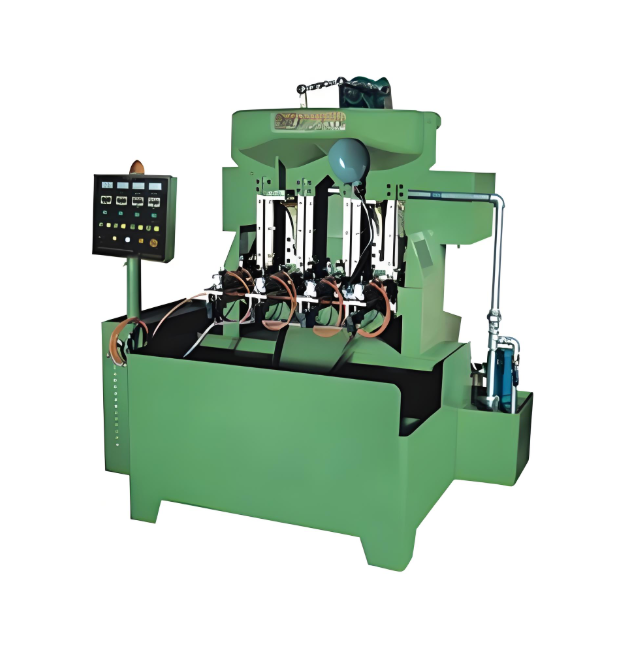In the world of industrial manufacturing, efficiency and precision are non-negotiable. Among the unsung heroes of production lines is the Nut Tapping Machine—a specialized tool designed to create internal threads in nuts with remarkable accuracy and speed. Whether you’re in automotive, aerospace, or general hardware production, understanding the role of this machine can unlock significant improvements in your workflow. Let’s dive into what makes nut tapping machines indispensable.
What is a Nut Tapping Machine?
A nut tapping machine is a mechanical or CNC (Computer Numerical Control) device engineered to cut threads into the inner surface of nuts. This process, known as tapping, ensures that nuts can securely fasten bolts or screws, forming reliable connections critical to structural integrity. These machines vary in complexity from manual benchtop units to fully automated systems integrated into assembly lines.
How Does It Work?
The nut tapping process involves three key stages:
- Clamping: The nut is securely held in place using a fixture or vise to prevent movement during tapping.
- Tapping: A rotating tap (a cutting tool with helical grooves) is driven into the nut’s pre-drilled hole. The tap removes material to carve precise threads matching the bolt’s specifications.
- Coolant and Chip Removal: Many machines use coolant to reduce friction and heat, while built-in mechanisms clear metal chips to maintain tool longevity and thread quality.
Advanced CNC models automate these steps, allowing for programmable depth, speed, and thread pitch adjustments to accommodate diverse nut sizes and materials (e.g., steel, brass, or titanium).
Key Advantages of Nut Tapping Machines
- High Precision: Ensures threads meet exact tolerances, reducing the risk of cross-threading or fastener failure.
- Speed: Automated machines can tap hundreds of nuts per hour, far outpacing manual methods.
- Versatility: Interchangeable taps and adjustable settings enable compatibility with various nut dimensions and thread standards (e.g., metric, UNC, or UNF).
- Cost Efficiency: This minimizes material waste and labor costs while maximizing output.
- Durability: Built to withstand high-volume production, these machines often feature robust construction and low-maintenance designs.
Applications Across Industries
Nut tapping machines serve as backbone tools in sectors where threaded fasteners are critical:
- Automotive: Producing engine components, chassis parts, and assembly-line nuts.
- Aerospace: Manufacturing high-strength, lightweight nuts for aircraft systems.
- Electronics: Creating miniature threads for precision devices.
- Construction: Supplying heavy-duty nuts for structural applications.
Future Trends: Automation and Smart Manufacturing
As Industry 4.0 reshapes production, nut tapping machines are evolving with:
- IoT Integration: Real-time monitoring of tool wear, performance analytics, and predictive maintenance.
- Robotic Collaboration: Integration with robotic arms for fully autonomous production cells.
- Sustainability: Energy-efficient designs and eco-friendly coolant systems to reduce environmental impact.
Conclusion
The nut tapping machine exemplifies how specialized engineering drives industrial progress. By combining precision, speed, and adaptability, it addresses the growing demand for high-quality threaded fasteners in an increasingly complex manufacturing landscape. For businesses aiming to stay competitive, investing in advanced tapping technology isn’t just an option—it’s a necessity.

